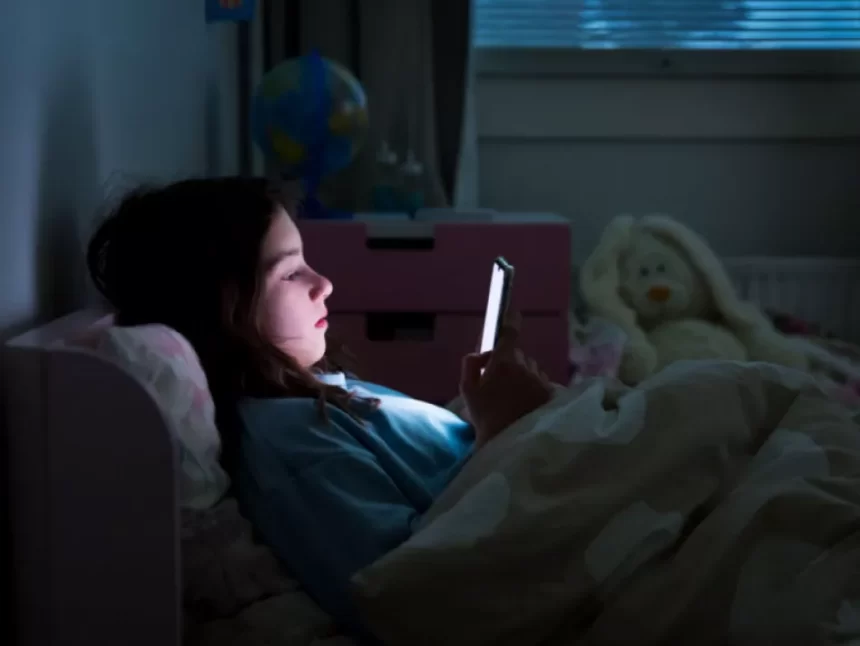Data from the Australian Centre to Counter Child Exploitation (ACCCE) shows that the number of annual reports to the Australian Federal Police (AFP) has doubled since the centre was launched in 2018.
In the 2021-22 financial year, 36,000 reports of online child abuse were recorded, a 60 per cent increase from the previous year. Crime Stoppers, NSW Police Force, the eSafety Commissioner and the Australian Federal Police-led Australian Centre to Counter Child Exploitation used the beginning of the summer school holidays to issue a joint statement aimed at raising awareness of the safety risks facing young people online.
Sadly, the statement says, school holidays are a time when children are most vulnerable to child sex predators, due to the increased time many children spend online. Crime Stoppers CEO Mr Peter Price AM explained the campaign’s focus is on two key areas.
“Firstly, prepare parents and help them better manage their children’s online presence and safety,” he said, and added that he implored parents to be even more attentive.
“Secondly to educate teens around sextortion – how to avoid it and what to do if they fall victim to a predator. Crime Stoppers’ mandate is to help: to stop, solve and prevent crime. Protecting our most vulnerable is a priority.”
Teen safety expert says parents can be proactive in online safety
Before taking on the role of Global Teen Safety Policy Manager at the popular Discord platform that launched in 2015, Liz Hegarty was Legislative Director at Common Sense Media – a non-profit, United States-based organisation focused on helping parents and kids thrive in a world of media and technology.
With a few more weeks of the school holidays still stretching out ahead of young people, Ms Hegarty says the best thing parents can do to ensure their child’s safety over the holidays is to create a dialogue on using the internet “safely, smartly, and securely”.
Read more: More than 1.3 million Aussies access online safety education
“Every family’s online safety needs and expectations are different, which is why we broadly invest in diverse sets of tools and resources to support our users,” she told EducationDaily.
“Additionally, we encourage guardians and educators to try Discord to understand how it works from the inside, making it easier to talk to younger ones about staying safe online.
“In fact, Family Center is a new tool we’ve built to help parents, guardians, and caregivers better understand how their teens use Discord, learn about the communities they are a part of, and develop collaborative approaches to build positive online behaviours. At a high level, Family Center gives parents a snapshot into their teens’ activity on Discord.”

According to recent research, the risks around online interactions are concerning.
Mind the Gap Research conducted by the eSafety Commissioner shows:
- 55 per cent of children communicated with someone they first met online yet only 34 per cent of parents were aware
- 62 per cent of 14-17 year olds have been exposed to negative online content, yet only 43 per cent of their parents were aware
eSafety Commissioner Julie Inman Grant says communication is the key; from an early age you can let your child know if anyone asks for a photo of them without clothes on, they should tell you straight away so you can help them.
“Just as we put helmets on our kids to ride a bike, we need to keep them safe when they go online – whether they’re watching videos, gaming, or on social networking apps. This is especially true with virtual reality headsets and connected toys,” she says.
“The best way to prevent your child from being groomed is to be a regular, active participant in their online and offline lives. Set family rules together, including which devices and apps can be used, when and for how long.
“Ensure devices are used in open areas of the home, rather than in the bathroom or bedroom, so you’re generally aware of what they’re doing online. Most importantly, co-play and co-view, particularly through interactive online games with strangers.
“The vast majority of covert online grooming and sexual extortion our investigators see is happening behind closed doors, in what might be considered the ‘safety and sanctity’ of one’s home.”
Starting open conversations is key
ACCCE and Human Exploitation Commander Helen Schneider says the holiday season was often very busy for parents and carers, and it was important to continue online safety conversations.
“With around 300 reports involving young people under 18 being received by the ACCCE each month, financial sextortion continues to be a significant safety threat for young people online,” she says.
“This initiative is about equipping parents and carers with the tools, resources and support so they are empowered to have these important discussions to help keep their children safer online.”
Protecting children from online dangers can’t be ignored
Commander of the NSWPF State Crime Command’s Sex Crimes Squad, Detective Superintendent Jayne Doherty, says parents can’t afford to ignore protecting their kids online.
“My advice to all parents is make sure you are educated and well-armed with resources available at places such as ‘ThinkUKnow’,” she says.
“I also recommend having regular open and honest conversations with your child about what they’re up to online. The best thing you can do is ensure they feel safe coming to you if they have questions or concerns about people they are engaging with. Sex Crimes Squad investigators spend every day online uncovering offenders who use the internet to groom children, and while we will not rest in the pursuit of any alleged sex offenders, we can’t fight this problem alone and need the help of parents.”
With Discord’s Safety Center enabling both teens and parents to easily access information about the variety of tools – such as blocking or muting – that can help protect against unwanted content or interactions, as well as clear information on what behaviours are and are not acceptable on the platform, Ms Hegarty says she believes parental tools are most effective when combined with the transparency that comes from participating in healthy conversations about online behaviour.
“Teens deserve to have a safe, welcoming space to explore their interests, connect with others, and find a place to belong,” she told EducationDaily.
“We encourage parents to spend time reviewing and discussing their teen’s settings so they can customise a Discord experience that is right for them. Together, we can make sure our children are educated and protected against online threats, so they can safely use the internet for all the positive and meaningful things it affords our children.”








